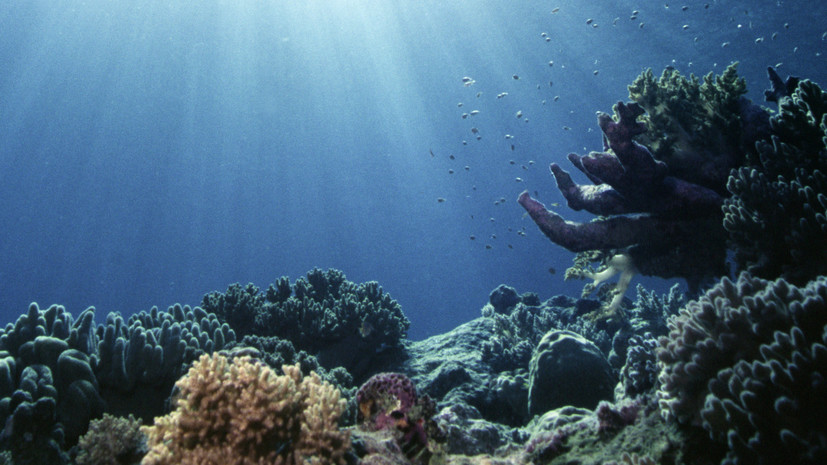Scientists from the Scientific Center for Marine Biology.
A.V.
Zhirmunsky FEB RAS (NSCMB FEB RAS), together with the Vietnamese Academy of Sciences and Technology, found out which types of reef corals are threatened with complete extinction, and which ones can survive in global warming.
The results of the study will help save coral reefs from extinction.
This was reported to RT in the press service of the Ministry of Education and Science of the Russian Federation.
The results are published in the journal Marine Drugs (MDPI) in a special issue of Reef Ecology and Marine Drug Discovery.
As the authors of the work recall, due to global warming by 2050, up to 70% of all coral reefs on the planet may disappear if this process cannot be stopped.
The survival of corals depends entirely on microalgae, with which the polyps are in close symbiosis.
Corals receive organic matter from algae, since they themselves are not capable of photosynthesis.
Microalgae live inside the cells of polyps, and their death leads to a phenomenon that experts call coral bleaching.
During this process, the lipid composition of corals changes dramatically — cell membranes of symbiotic microalgae also consist of lipids.
As one of the solutions to this environmental problem, it is proposed to transplant heat-resistant microalgae to corals.
However, to do this, scientists need to select temperature-resistant species of coral symbionts, otherwise the transplanted microalgae will not be able to survive.
Gettyimages.ru
© Georgette Dowma
“The symbiosis of plant and animal organisms has made it possible to form a whole ecosystem of coral reefs.
However, under the influence of stress factors, symbiotic microalgae leave the coral, reefs turn white and lose their color.
This leads to the death of entire marine ecosystems, the basis of which are corals.
In order to preserve the coral reef ecosystem in the face of global warming, it is urgent to take measures to protect the remaining reefs, ”said Tatyana Sikorskaya, a researcher at the Laboratory of Comparative Biochemistry of the NSCMB FEB RAS, in an interview with RT.
According to the authors of the work, it is the study of the lipid profile of corals that makes it possible to determine the resistance of corals and their microalgae symbionts to warming.
Researchers have identified corals whose symbionts are able to live in conditions of elevated temperatures.
In particular, microalgae from hydrocorals (
Milepora platyphylla
) and reef-building corals (
Acropora
sp.) turned out to be such.
Octocorals
(
Sinularia
flexibilis
)
, on the contrary, are sensitive to changes in the temperature of symbionts and may be endangered.
“The lipidomic approach allows us to trace the relationship between the community of symbiotic microalgae and coral.
Now we can determine which corals are able to survive,” said Tatyana Sikorskaya.
According to experts, the results of their research can be used by a wide range of specialists for environmental monitoring and restoration of the coral reef ecosystem.

